The Muni Affair, A Confrontation Between France and Spain in the 19th Century
DOI:
https://doi.org/10.51743/cih.385Keywords:
International Law, International Relations, Equatorial Guinea, the Berlin Conference of 1884-1885, The, Paris Treaty of 1900Abstract
Spain and France had a dispute in equatorial Africa during the second half of the nineteenth century that was called The Muni Affair by the press of the time. On the one hand, Spain had received from Portugal in 1778 two islands and the right to trade on the coast of the Gulf of Guinea, taking possession of the former in 1843. Later it incorporated the islands of Corisco and Elobeyes, and the mainland area of Cabo de San Juan (1843-1858). On the other hand, France, which had been present in neighbouring Gabon since 1843, only recognised Spain’s sovereignty over Corisco, but not over the rest. There were diplomatic clashes and constant intrusions on the ground. The study of this bilateral crisis, and its resolution in 1900, is the subject of this article.
Downloads
References
Ballano Gonzalo, F. (2014). Aquel negrito del África Tropical. El colonialismo español en Guinea (1778-1968). Casa de África–Sial Ediciones, Madrid.
Castro, M.L. de y Calle, M.L. de la, (1992). Origen de la colonización española en Guinea Ecuatorial. Secretariado de publicaciones de la U. de Valladolid.
Coello, F. (1889).” La Cuestión del Río Muni”, en Revista de Geografía Comercial, 15-I- 1889, págs. 145-156.
Coll, A. (1911). Segunda Memoria de las Misiones de Fernando Poo y sus dependencias. “Imprenta Ibérica” de Estanislao Maestre, Madrid.
Gutiérrez Garitano, M. (2011), Apuntes de la Guinea. Vida, obra y memoria de Manuel Iradier. Ikusager Ediciones, Vitoria.
Gutiérrez Sobral, J. (1902). “La Guinea Española”, Memoria presentada al Excmo. Sr. ministro de Estado, en Boletín de la Real Sociedad Geográfica, tomo XLIV. Imprenta y Litografía del Depósito de la Guerra, Madrid, pp. 7-16.
Iradier y Bulfy, M. (1887). África: Viajes y trabajos de la asociación euskara La Exploradora. Imprenta de la viuda e hijos de Iturde, Vitoria.
Iradier y Bulfi, M. (2000). África: un español en el golfo de Guinea. (R. Jiménez Fraile, Ed.). Mondadori, Barcelona.
Martínez Salazar, Á. (1993). Manuel Iradier. Las azarosas empresas de un explorador de quimeras. Ediciones del Serbal, Barcelona.
Miranda Junco, A. (1945). Leyes Coloniales. Imprenta Sucesores de Rivadeneyra, Madrid.
Pedraz Marcos, A. (2000). Quimeras de África, La Sociedad Española de Africanistas y Colonistas. El colonialismo español de fines del siglo XIX. Ediciones Polifemo. Madrid.
Quijano Junquera, C. (2021). El explorador Manuel Iradier y la conquista del Muni. Guerra Colonial, núm. 8, págs. 95-120.
Rodríguez Esteban, J.A. (1996). La Sociedad Geográfica de Madrid (1876-1936). Ediciones de la Universidad Autónoma de Madrid, Cantoblanco (Madrid).
Vilaró i Güell, M. (2021) “José Montes de Oca, gobernador de Río Muni”, en Boletín de la Real Sociedad Geográfica, núm. CLVI, Madrid, pp. 203-233.
Downloads
Published
How to Cite
Issue
Section
License
The Fundación Universitaria Española publishing house preserves the patrimonial rights (copyright) of published works, and encourages and allows their reuse. The works are published in the electronic edition of the journal under a license “Creative Commons Atribución/Reconocimiento-NoComercial 4.0 Licencia Pública Internacional — CC BY-NC 4.0”, and can be copied, used, disseminated, transmitted and publicly exhibited, provided that : a) the authorship and original source of its publication is cited (journal, publisher and URL of the work); b) are not used for commercial purposes; c) the existence and specifications of this license of use are mentioned.
The author / s partially transfer the property rights (copyright) of this work to the Fundación Universitaria Española (Spain) (NIF: G28433670), for the printed and online editions.
It also declares to have respected the ethical principles of research and to be free from any conflict of interest.
«C.I.H.» encourages the authors and the scientific community to the maximum promotion and dissemination of the works in their final version through:
1) Your list of contacts (emails) and social networks (Facebook, Twitter, LinkedIn ...).
2) Institutional repository of your University and public repositories (Mendeley, Cosis ...).
3) Scientific social networks (ResearchGate, Academia.edu, Kudos ...).
4) Personal or institutional website, blog, etc.
5) Google Scholar, ORCID, ResearchID, ScopusID, Dimensions, PlumX ...
6) Printed copies purchased directly and sent to specialists for reading and subsequent citation if appropriate.
For the nomination of future articles by authors of "C.I.H.", the impact of previous works will be taken into account, so that those with citation higher than the annual average of the journal will be preferred.






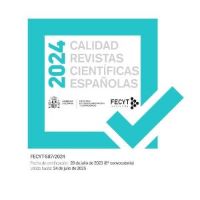




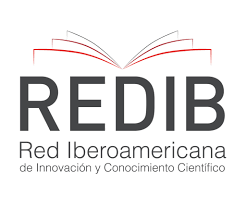
2.jpg)


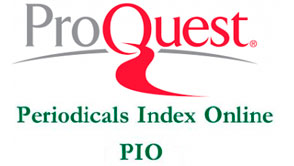
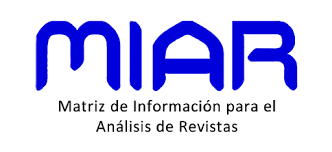








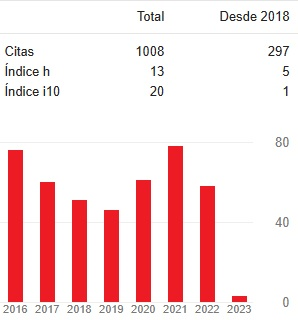



1.png)
1.png)

1.png)


.png)
.png)

.png)
1.png)
1.png)
